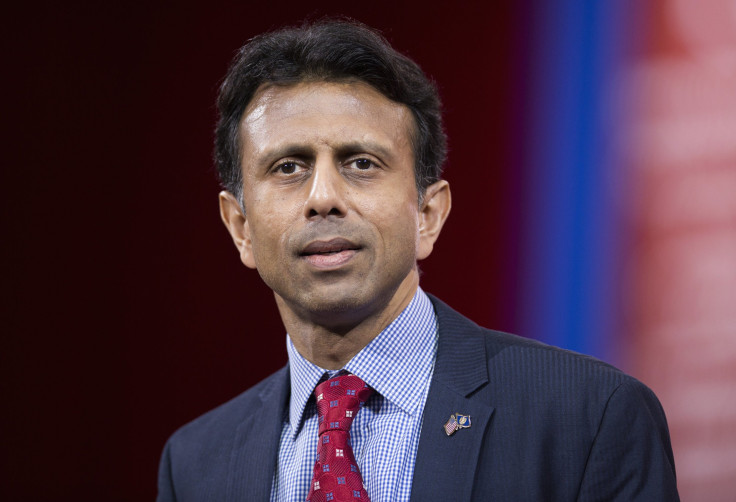Louisiana Marriage Act: Film Industry On Edge Following Indiana Boycott Of 'Anti-Gay Law'

Political theater is outselling show business in Louisiana, where lawmakers are promoting what’s expected to be a box office blowout centering on religious beliefs and marriage with a bill that would allow private businesses to refuse to recognize same-sex couples or service gay weddings. To the state’s nascent motion picture industry, an enterprise that emerged in the early 2000s and has put Louisiana on the map as one of the country’s premier filming destinations, there’s no silver lining to the bill that could alienate out-of-staters in the same way a controversial religious freedom law recently led to a national boycott against Indiana.
“For those of us in the creative industries … this bill creates a significant challenge,” said Lampton Enochs, CEO of Moonbot Studios, a film animation company in the northern city of Shreveport, one of Louisiana’s three main movie industry hubs. “We’re competing with companies in L.A., San Francisco and New York. I think a bill like this would make it difficult to recruit out-of-state talent.”
The bill, titled the “Louisiana Marriage and Conscience Act,” would give private business owners more power in asserting their marriage beliefs in dealing with clients – something many have interpreted as meaning they can use religious convictions as an excuse to deny serving gays and lesbians. While the final version of the bill, introduced last week by Republican state Rep. Mike Johnson, could look a lot different by the time it goes to committee, many expect it will find broad support.
So-called religious freedom laws are popular in red states like Louisiana, where a largely conservative, religious voter base sees the national push for gay marriage not just as the product of a so-called liberal media agenda, but also as a kind of war on Christianity and its values upholding marriage as the union of one man and one woman.
Gay rights groups are mobilizing to make sure lawmakers know that not every Louisianan supports the marriage act, said Bruce Parker, executive director of Louisiana Progress. The liberal organization is compiling a list of businesses, tourism bureaus and chambers of commerce that are coming out against the bill. They hope to make the list public later this week.
“Any law that encourages people to use religion to hurt other people is a bad law,” said Marjorie Esman, executive director of the American Civil Liberties Union of Louisiana.
The potential outcry against Johnson’s marriage bill likely won’t deter Louisiana’s conservative lawmakers, whose seats are tied to local constituencies, not national trends. In fact, the spotlight on Louisiana’s marriage bill, however unflattering, could actually help Gov. Bobby Jindal who, as a possible 2016 presidential contender, is poised to benefit from being perceived as a defender of Christian values. Jindal has said he intends to sign the bill if passed.
“I really don’t expect that kind of backlash to bother Bobby Jindal at all,” said Pearson Cross, an associate professor of political science at the University of Louisiana at Lafayette. “Our governor is going to be strongly in support of this bill, given his aspirations to appeal to the right and the conservative Christian wing.”
Movie-making has become big business in Louisiana in recent years. The industry was largely spurred by generous state tax credits, passed in 2002, aimed at producing motion pictures in-state. The incentive program worked. In 2013, more feature films were shot in Louisiana than in any other U.S. location, according to a report released Monday by the Louisiana Film Entertainment Association. Last year, several news outlets referred to Louisiana as the next Hollywood.
Today, Louisiana’s film industry is a $1 billion business, having created thousands of jobs in production but also in peripheral industries like costume design and equipment delivery services. The state has become the backdrop of such award-winning films as "The Curious Case of Benjamin Button,” “Dallas Buyers Club” (set in Texas) and "12 Years a Slave.” Shows including HBO’s “True Detective” and “Treme,” and FX’s “American Horror Story: Coven” have shown audiences that there’s more to Louisiana than Mardi Gras and New Orleans.
Despite the successes of the local film industry, Louisiana currently faces a $1.6 billion shortfall following crippling drops in oil prices last year, according to the Times-Picayune of New Orleans. The loss amounted to about $11 million in state revenue for every dollar per barrel the price of oil has fallen.
“Louisiana needs to get its house in order, and alienating large groups is not the way to do that,” said Cross.
© Copyright IBTimes 2024. All rights reserved.












